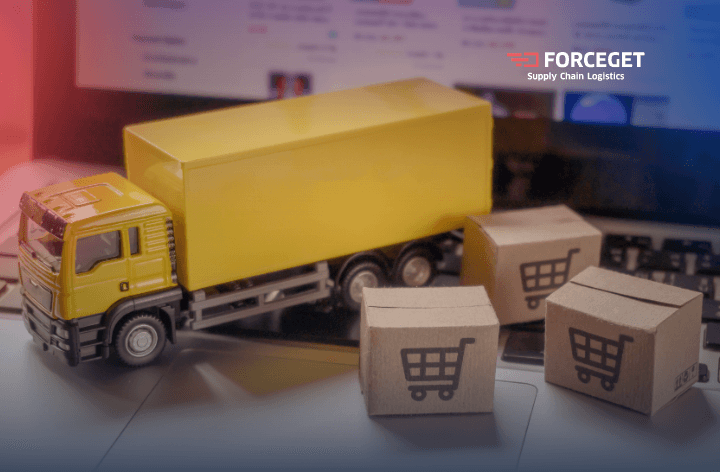What is 3PL?
What is 3PL, or Third-Party Logistics is where 3PL providers act as an extension of your business, allowing you to focus on your core competencies – product development, marketing, and customer service – while they handle the complexities of fulfillment.
3PLs leverage their expertise, infrastructure, and technology to provide increased control over your ecommerce operations.
This further translates to greater visibility into inventory levels, faster order fulfillment times, and potentially reduced shipping costs.

3PL Definition
3PL stands for 3PL logistics or third-party logistics, and refers to the practice of outsourcing logistics operations to a specialized company.
These operations encompass a wide range of services which include:
Warehousing and Storage
3PL warehouse meaning companies offer secure and strategically located warehouses to store your inventory.
This allows you to hold stock closer to your customer base, reducing shipping times and potentially lowering costs.
3PL logistics company can also provide different types of storage solutions depending on your needs, such as bulk storage for food and beverages, and high-value storage for expensive or delicate products.
Inventory Management
Managing inventory levels effectively is crucial for any ecommerce business. 3PL providers can take care of this task for you, including receiving your products, storing them securely, tracking inventory levels in real-time, and picking and packing orders accurately.
They can also provide inventory reports and insights to help you optimize your stock levels and avoid stockouts or excess inventory.
Order Fulfillment
When a customer places an order on your online store, the 3PL services receives it electronically and efficiently fulfills it.
This involves picking the ordered items from your inventory, packing them securely, and shipping them to the customer.
3PLs have experience in efficient order fulfillment processes, ensuring fast turnaround times and a positive customer experience.
Packing and Shipping
3PLs have the expertise and resources to pack your products securely and efficiently to prevent damage during transit.
They can also offer a variety of shipping options to meet your customer’s needs and budget.
Additionally, 3PLs can leverage their high volume to negotiate better shipping rates with carriers, potentially reducing your overall shipping costs.
Transportation Management
Some 3PL logistics providers offer transportation management services, which involves managing the transportation of your goods from origin to destination.
This can include selecting carriers, negotiating freight rates, scheduling shipments, and tracking shipments in real-time.
3PLs with expertise in transportation management can help you optimize your shipping routes and reduce transportation costs.
How Does a 3PL Work?
The inner workings of a 3PL can be further broken down into a series of steps that showcase the collaboration between your business and the 3PL provider.
1. Onboarding
This initial phase involves establishing a clear understanding of your business needs and the services you require from the 3PL.
3PL meaning, will assess your inventory, order volume, and any specific requirements you may have.
They might also integrate their systems with your online store to ensure seamless order flow.
2. Inventory Receiving
You’ll ship your products to the 3PL’s warehouse. The 3PL will have a documented receiving process to ensure accurate inventory levels.
This might involve checking product quantities against packing slips, increasing for damage, and assigning unique identifiers for tracking purposes (all leveraging their warehouse management systems).
3. Inventory Storage
The 3PL services mean storing products securely within their warehouse. Depending on your needs, they might offer various storage options like bulk shelving, pallet racking, or temperature-controlled environments.
3PLs typically use warehouse management software to optimize storage space and ensure efficient picking routes.
4. Order Processing
When a customer places an order on your online store, it’s electronically transmitted to the 3PL’s system.
The 3PL’s order management system (OMS) will verify the order details, check inventory availability, and initiate the fulfillment process.
5. Order Fulfillment
The 3PL’s fulfillment team will locate the ordered items in the warehouse based on the order details.
This might involve using barcode scanners or radiofrequency identification (RFID) technology to ensure accuracy.
Once located, the items are carefully picked and placed in appropriate packaging materials. The 3PL might offer different packaging options based on your needs and the type of product being shipped.
6. Packing and Shipping
The 3PL will ensure your products are securely packed to prevent damage during transit.
They might use various packing materials like boxes, bubble wrap, or void fill depending on the item’s size and fragility.
The 3PL will likely have negotiated discounted shipping rates with major carriers due to their high volume. They’ll choose the most appropriate shipping method based on factors like cost, speed, and customer preferences (as indicated during checkout).
7. Shipment Tracking
The 3PL will provide you and your customers with real-time shipment tracking information.
This allows for greater transparency and keeps everyone informed about the delivery status.
8. Returns Processing (Optional)
Depending on your agreement with the 3PL, they might also handle the returns process.
This could involve receiving returned items, inspecting them for damage, restocking them in the warehouse if applicable, and potentially issuing customer refunds.
What is a 3PL Company?
A 3PL company, also known as Third Party logistics provider company, is a specialist company that offers a range of logistics services to businesses.
These services can encompass warehousing, inventory management, order fulfillment, transportation management, and even value-added services like kitting and packaging.
3PL Logistics Company
3PL logistics definition has warehouse networks across various geographical locations. This allows you to store your inventory closer to your customer base, which significantly reduces shipping times and potentially lowers your transportation costs.
Additionally 3PLs can offer a variety of warehouse storage solutions to cater to your specific needs.
Efficient inventory management is crucial for any ecommerce business. 3PLs have the expertise and technology to streamline this process.
Benefits of 3PL
They will receive your products at their warehouse, securely store them, and track inventory levels in real-time using warehouse management systems (WMS).
This allows you to have constant visibility into your stock levels and avoid stockouts or excess inventory.
3PLs can also provide comprehensive inventory reports that can be instrumental in optimizing your ordering and forecasting practices.
When a customer places an order on your online store, the order details are electronically transmitted to the 3PL’s order management system (OMS). The 3PL’s fulfillment team will then efficiently locate, pick, and pack the ordered items.
They typically use barcode scanners or radiofrequency identification (RFID) technology to ensure accuracy throughout the picking process. Once picked, the items are carefully packed using appropriate packaging materials to prevent damage during transit.
3PLs often have experience in optimizing packaging efficiency to reduce dimensional weight and potentially lower your shipping costs.
3PLs offer a variety of shipping options to meet your customer’s needs and budget. This might include standard ground shipping, expedited shipping options, or international shipping. They leverage their high-volume shipping to negotiate competitive rates with major carriers, which can translate into significant cost savings for your business.
While not all 3PLS offer returns processing, it’s a valuable service to consider, especially for businesses that anticipate a high volume of returns. 3PLs can streamline the returns process by receiving returned items, inspecting them for damage or missing components, and restocking them in your inventory if applicable.
They can even handle the process of issuing customer refunds according to your return policy.
3PLs use warehouse management systems (WMS) to manage inventory storage locations, track stock levels, and optimize picking routes within the warehouse. Additionally, they use order management systems (OMS) to receive orders electronically from your online store, manage order fulfillment processes, and provide real-time shipment tracking information for you and your customers.
3PL Vs. 4PL
3PL or Third-Party Logistics
3PLs handle the execution of specific logistics tasks. They act as an extension of your in-house fulfillment operations providing services like warehousing, inventory management, order fulfillment, and transportation management.
You maintain a high degree of control over your supply chain strategy. You’ll contract with the 3PL for specific services and manage the overall direction.
3PLs use warehouse management systems (WMS) and order management systems (OMS) to optimize their internal operations and provide data on your inventory and fulfillment processes.
Businesses that require efficient and reliable execution of core logistics tasks but want to maintain strategic control over their supply chain. This could be businesses of various sizes, from startups to established companies with a defined logistics strategy.
4PL (Fourth-Party Logistics)
4PLs can take a more strategic approach to supply chain management. They act as a single point of contact, overseeing and managing the entire supply chain. This can involve working with multiple 3PLs, carriers, and other vendors to optimize the flow of goods from origin to destination.
You cede a greater degree of control over the day-to-day logistics operations to the 4PL provider. However, you retain control over the overall supply chain strategy and can set performance metrics for the 4PL.
4PLs use advanced supply chain management (SCM) software and have expertise in data analytics. They leverage these tools to analyze your supply chain data, identify inefficiencies, and recommend strategic improvements across all aspects of your logistics operations.
Larger businesses with complex supply chains that require a more strategic and integrated approach to logistics management. 4PLs can be beneficial for companies looking to streamline their supply chain, reduce costs, and gain a competitive edge.
Factors to Consider When Choosing a 3PL Provider
Selecting the right 3PL partner is crucial for the success of your ecommerce business.
1. Services offered
Ensure the 3PL offers the services you require. This could include warehousing, fulfillment, transportation management, international shipping, value-added services (kitting, labeling), and potentially returns processing.
Consider whether the 3PL can accommodate your current and future needs. Look for a provider with the infrastructure and flexibility to scale their services as your business grows.
2. Pricing Structure
Understand the 3PL’s pricing model and get quotes for the specific services you need. This might include per-unit storage fees, picking, packing fees, shipping costs, and any additional service charges.
Be wary of hidden fees that can inflate your overall logistics costs. Ensure you get a clear breakdown of all potential charges upfront.
3. Technology and Infrastructure
A robust WMS is essential for efficient inventory management, order fulfillment, and real-time data visibility.
Ensure seamless integration between the 3PL’s OMS and your online store platform for smooth order processing and fulfillment.
Consider the location and size of the 3PL’s warehouses. Strategically located warehouses closer to your customer base can reduce shipping times and potentially lower costs. Additionally, inquire about the types of storage options available (standard racking, temperature-controlled storage, etc.)
4. Customer Service
Evaluate the 3PL’s communication style and response times. You’ll want a partner that is readily available to address your questions and concerns.
Choose a 3PL that provides regular performance reports on metrics like order fulfillment accuracy, on-time shipping rates, and inventory levels. This data is crucial for monitoring your logistics performance and identifying areas for improvement.
5. Contractual Terms
Ensure the contract clearly outlines service level agreements (SLAs) with specific performance metrics and penalties for non-compliance.
This helps safeguard your business from potential disruptions.
Understand the terms for terminating the contract, including any notice periods or early termination fees.
3PL for Amazon FBA
3PL for Amazon FBA can play a valuable role if you sell on platforms beside Amazon, a 3pl can manage your entire inventory in one location, eliminating the need to store duplicate stock in multiple FBA warehouses.
Amazon FBA has restrictions on product size, weight, and specific categories (flammables, hazardous materials, etc.) A 3PL can handle fulfillment for items that don’t comply with FBA guidelines, providing more flexibility in the products you can offer.
3PL for FBA can provide a more scalable fulfillment solution that can accommodate your growing sales volume and product range.
